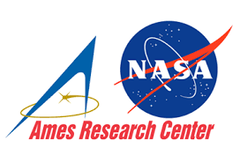Program Outlines
The MaxIQ Space STEM programs are built on the following fundamentals:
- Building young scientists and preparing youngsters for their futures in Industry 4.0
- Giving access to all
- Affordable, scalable, digital, and leading to coding of experiments within minutes
- No requirement for a lab, or any technical equipment (e.g. no soldering required to build electronics)
MaxIQ has been established to facilitate learning regardless of students' current level of understanding regarding mechanical, electrical, and computer science engineering.
All programs align with our Pathway to Space.
All programs offered by MaxIQ Space include access to the following:
Pre-coded Software
Arduino code has been developed for the kits so that students can begin experimenting within minutes. When setting up the kits, the code is copied to the kit CPU. Once students are familiar with the operations of the kit, they can develop their own code for the kit.
Coding Languages and Examples
All the CPUs can be coded in Make-Code, Java, Python, Arduino and other popular languages in education and industry. The team has developed samples of code so that students can use these to develop their own, custom solutions.
Digital Dashboards
The kits can be connected to standard dashboards developed in Kibana and UbiDots. The students can develop their own dashboards too, and both Kibana and UbiDots are open source.
Our Partners
Changing the world isn't easy, and we couldn't do it alone.
A core value of MaxIQ is to be able to provide our educational resources to students around the globe, especially those who live in areas where there is a lack of educational infrastructure to support these young minds in achieving their full potential. MaxIQ wouldn't be able to fulfil our mission without support from...
Subscribe to our emails
Subscribe to our mailing list for insider news, product launches, and more.




